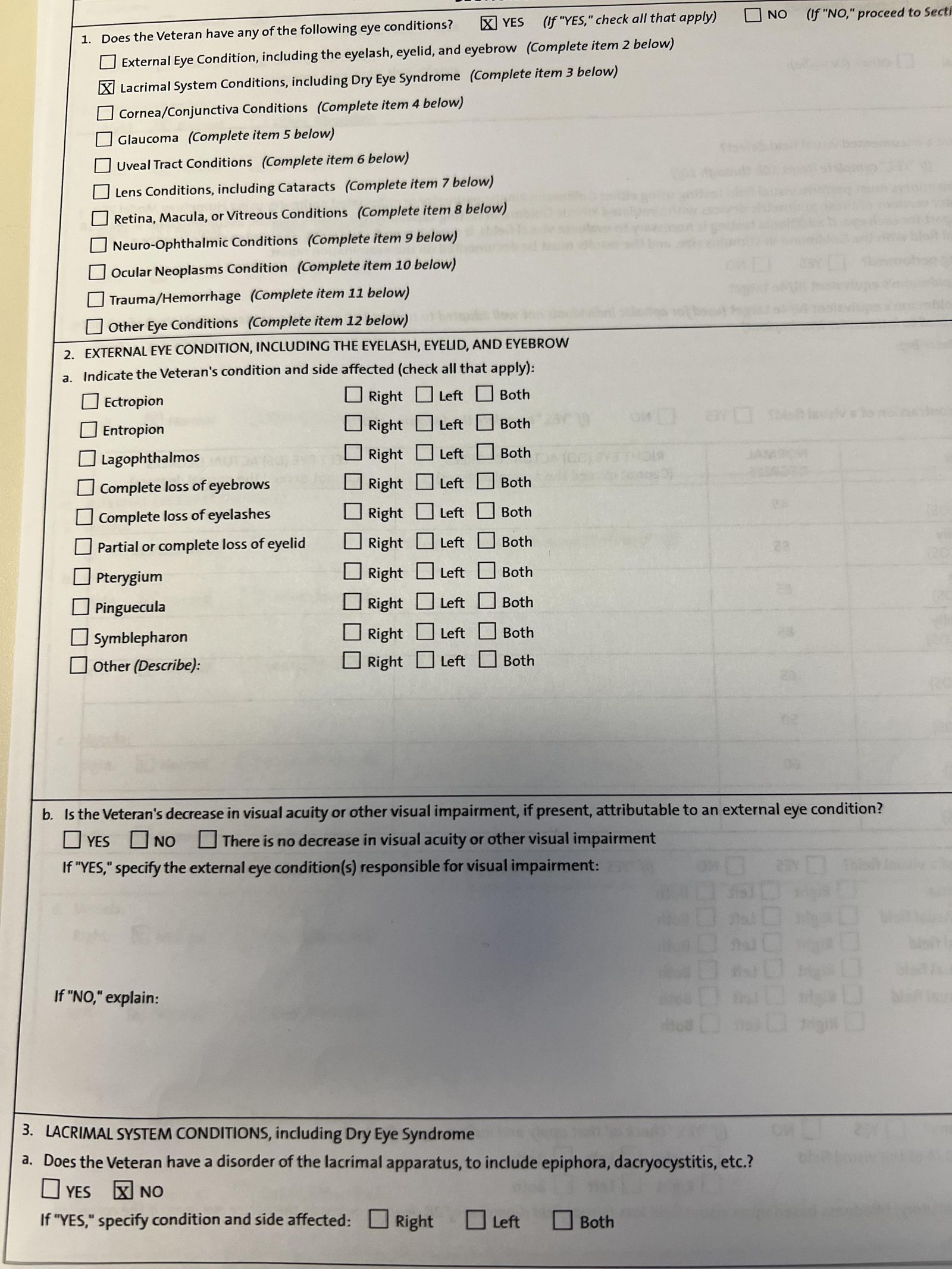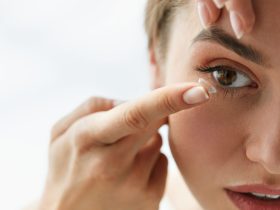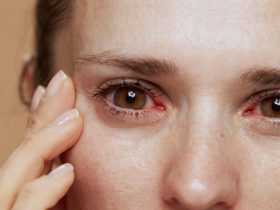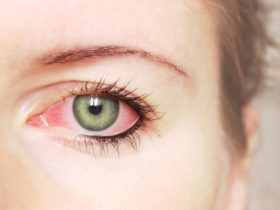The VA rates dry eyes based on severity, ranging from 0% to 30%. The rating depends on symptoms and impact on daily life.
Dry eyes can significantly affect a veteran’s quality of life. The VA assigns disability ratings to veterans suffering from this condition. These ratings help determine the level of benefits they receive. Symptoms like dryness, redness, and irritation can interfere with daily activities.
Understanding the VA rating system for dry eyes is crucial for veterans seeking appropriate compensation. Ratings are based on the severity of symptoms and how they impair normal functioning. Veterans should consult their healthcare providers to ensure accurate documentation of their condition. Proper documentation can help in receiving the correct VA benefits.

Credit: www.woodslawyers.com
Introduction To Dry Eyes Va Rating
Dry eyes can be a frustrating and painful condition. For veterans, this condition can affect their daily lives. The VA (Veterans Affairs) offers a rating system to assess the severity of dry eyes. This rating helps determine the level of benefits a veteran can receive. Understanding this rating is crucial for veterans suffering from dry eyes.
Understanding Dry Eyes
Dry eyes happen when your eyes do not make enough tears. It can also occur if the tears evaporate too quickly. Common symptoms include:
- Burning sensation
- Redness
- Sensitivity to light
- Blurred vision
Various factors can cause dry eyes. These include aging, medical conditions, and certain medications. Dry eyes can significantly impact a person’s quality of life. Veterans experiencing this should seek medical advice.
Importance Of Va Rating
The VA rating for dry eyes helps determine the benefits a veteran can receive. This rating is based on the severity of the condition. A higher rating means more support and benefits. The rating system considers:
- The frequency and severity of symptoms
- The impact on daily activities
- The effectiveness of treatments
Understanding your VA rating is essential. It ensures you receive the proper support and care. Veterans should keep detailed records of their symptoms and treatments. This information helps in getting an accurate rating.
Symptoms And Causes Of Dry Eyes
Dry eyes can be uncomfortable and even painful. Understanding the symptoms and causes can help manage this condition effectively.
Common Symptoms
- Redness: Eyes may appear red and irritated.
- Burning Sensation: A frequent burning feeling in the eyes.
- Itchiness: Persistent itchiness is a common symptom.
- Blurred Vision: Vision can become blurry or unclear.
- Watery Eyes: Paradoxically, dry eyes can cause excessive tearing.
- Light Sensitivity: Sensitivity to light can increase.
Potential Causes
| Cause | Description |
|---|---|
| Aging | Dry eyes become more common as we age. |
| Medications | Certain drugs can reduce tear production. |
| Environmental Factors | Wind, smoke, and dry air can cause dry eyes. |
| Screen Time | Staring at screens can reduce blink rate. |
| Health Conditions | Conditions like diabetes can contribute to dry eyes. |
Eligibility Criteria For Va Rating
Understanding the eligibility criteria for a VA rating is crucial for veterans. This section will guide you through the necessary conditions and documentation required. Ensuring your application meets these criteria can significantly improve your chances of success.
Service-connected Conditions
To qualify for a VA rating for dry eyes, your condition must be service-connected. This means your dry eyes must have developed during or due to your military service. The VA needs proof that your military duties caused or worsened your condition.
Here are some key points to consider:
- Medical records from your time in service showing eye problems.
- Current medical diagnosis of dry eyes by a licensed doctor.
- Service records that link your eye condition to military duties.
Medical Documentation
Proper medical documentation is essential for a successful VA rating claim. The VA requires comprehensive medical evidence to support your claim.
Ensure you have the following:
- Diagnosis: A clear and current diagnosis of dry eyes.
- Symptoms: Detailed documentation of symptoms affecting daily life.
- Treatment: Records of all treatments received and their effectiveness.
Consider the following:
| Document | Details Needed |
|---|---|
| Service Records | Proof of eye issues during service. |
| Medical Records | Diagnosis and ongoing symptoms of dry eyes. |
| Treatment Records | Details of treatments and their outcomes. |
Having thorough and accurate documentation strengthens your claim significantly. Ensure all your records are up-to-date and reflect your current condition.
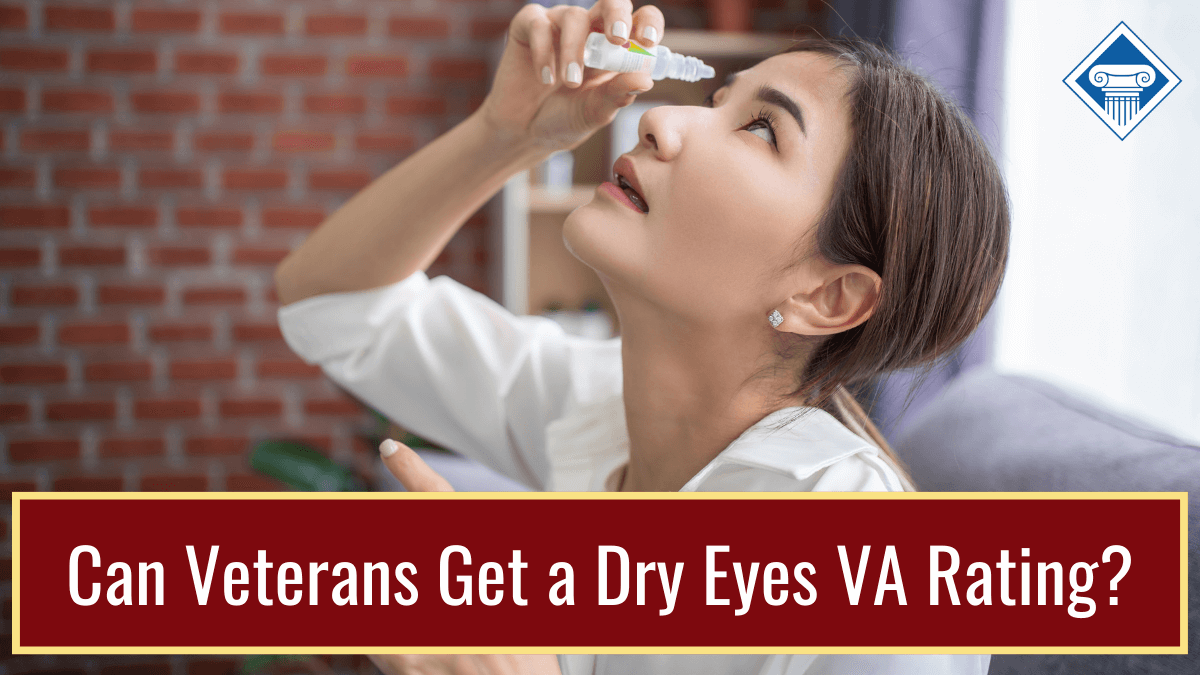
Credit: www.woodslawyers.com
Filing A Va Claim For Dry Eyes
Veterans with dry eyes can seek benefits. The VA offers compensation for this condition. Filing a claim involves specific steps and forms.
Required Forms
To file a VA claim for dry eyes, you need certain forms. The main form is VA Form 21-526EZ. This form is for disability compensation. You also need medical evidence. This can include doctor’s notes and test results.
Another important form is VA Form 21-4138. This is a Statement in Support of Claim. Use this form to explain your dry eyes condition. Provide as much detail as possible.
Step-by-step Guide
Follow this guide to file your claim:
- Gather Documents: Collect all necessary medical records. Ensure you have VA Form 21-526EZ and VA Form 21-4138.
- Fill Out Forms: Complete VA Form 21-526EZ. Provide personal information and details about your condition. Fill out VA Form 21-4138. Explain your dry eyes symptoms and how they affect you.
- Submit Forms: Send your completed forms to the VA. You can submit online, by mail, or in person.
- VA Review: The VA will review your claim. They might ask for more information. Be ready to provide any extra documents.
- Await Decision: The VA will make a decision. They will inform you about their decision and any benefits you will receive.
Filing a VA claim for dry eyes can be a detailed process. Follow the steps carefully to ensure success.
Common Challenges In Va Claims
Veterans often face hurdles when filing for VA benefits for dry eyes. The process can be confusing and frustrating. Many claims are denied or delayed. Understanding common challenges can help you avoid mistakes.
Frequent Denials
One major challenge is frequent denials. VA claims for dry eyes often get denied. This happens because of various reasons.
- Lack of medical evidence
- Improper documentation
- Failure to prove service connection
Medical evidence is crucial. Ensure you have a detailed diagnosis. This should come from a qualified healthcare provider. Proper documentation includes medical records, service records, and personal statements.
Another reason for denial is the failure to prove service connection. You must show that your dry eyes started or worsened during service. Evidence from military doctors can support this.
Incomplete Applications
Many applications get rejected due to incomplete information. Make sure your application is thorough.
| Common Missing Items | Consequences |
|---|---|
| Medical Records | Claim Denied |
| Service Records | Delayed Processing |
| Personal Statements | Insufficient Evidence |
Medical records should include all treatments and diagnoses. Service records should show your duty stations and roles. Personal statements can describe your symptoms and their impact on daily life.
Always double-check your application. Ensure all fields are filled. Missing information can lead to delays or denials.
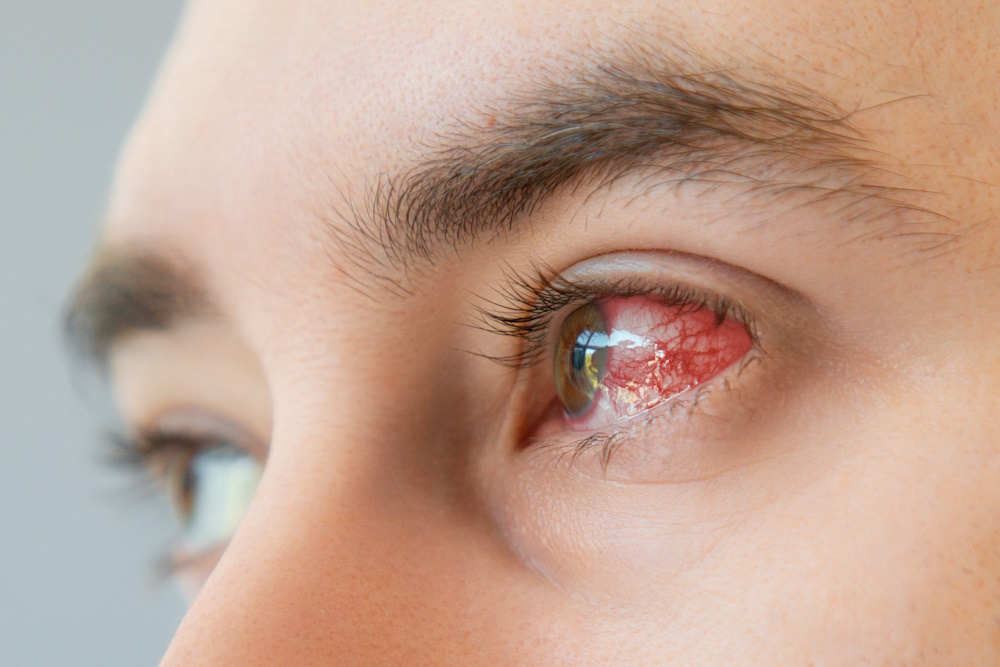
Credit: benefits.com
Maximizing Your Va Disability Rating
Maximizing your VA disability rating for dry eyes is crucial. This ensures you receive the benefits you deserve. Let’s explore ways to strengthen your claim.
Gathering Strong Evidence
Evidence is key to a successful VA disability claim. Here’s what you need:
- Medical Records: Collect all your medical records.
- Doctor’s Notes: Include notes from your eye specialist.
- Service Records: Show how service caused your dry eyes.
- Personal Statements: Write about how dry eyes impact your life.
Ensure all documents are clear and complete. This helps prove your case.
Working With A Va Representative
A VA representative can guide you through the process. They help you understand the steps involved. Here’s why you should work with one:
| Benefit | Description |
|---|---|
| Expertise | They know the system well. |
| Guidance | They help gather and submit documents. |
| Support | They provide moral support throughout the process. |
Choose a representative with a good track record. This ensures you get the best help.
Appealing A Denied Claim
Receiving a denial for your VA claim can be frustrating. Understanding the appeal process is crucial. Follow these steps to increase your chances of a successful appeal.
Understanding The Appeal Process
The first step is to understand the VA appeal process. Familiarize yourself with the different stages.
- Notice of Disagreement (NOD)
- Statement of the Case (SOC)
- Supplemental Statement of the Case (SSOC)
- Board of Veterans’ Appeals (BVA)
Each stage requires specific actions and timelines. Missing deadlines can delay your appeal.
Tips For A Successful Appeal
Here are some tips to ensure your appeal is successful:
- Gather all relevant medical records. Ensure they show the severity of your dry eyes.
- Get a second medical opinion. This can support your original diagnosis.
- Write a detailed statement. Explain how your condition affects your daily life.
- Meet all deadlines. Submit all documents on time to avoid delays.
- Consult a VA-accredited representative. They can guide you through the process.
Using these tips will improve your chances of a successful appeal.
Additional Resources For Veterans
Veterans often face unique health challenges, including dry eyes. Navigating VA ratings and benefits can be complex. Thankfully, there are additional resources available to help veterans manage dry eyes and get the support they need.
Support Groups
Support groups offer a community for veterans dealing with dry eyes. These groups provide a safe space to share experiences and solutions. Connecting with others can be therapeutic and informative.
- Online Forums: Platforms like Reddit and Facebook host veteran-focused groups.
- Local Meetups: Many communities have veteran support meetings.
Joining a support group can help veterans feel less isolated. It also provides practical advice and emotional support.
Legal Assistance
Understanding VA ratings for dry eyes can be challenging. Veterans may need legal help to navigate the system. Several organizations offer free or low-cost legal assistance.
| Organization | Services |
|---|---|
| Veterans Legal Institute | Free legal services for veterans. |
| National Veterans Legal Services Program | Assists with VA claims and appeals. |
Legal experts can help veterans understand their rights and maximize their benefits. This support can make a significant difference in their quality of life.
Frequently Asked Questions
What Is The Va Rating For Dry Eyes?
The VA rating for dry eyes can range from 0% to 20% based on severity.
How To Get Va Compensation For Dry Eyes?
Submit a VA disability claim with medical evidence proving the connection to your service.
Can Dry Eyes Be A Va Disability?
Yes, dry eyes can qualify as a VA disability if linked to military service.
What Are The Symptoms Of Dry Eyes?
Symptoms include redness, burning, itching, and a gritty sensation in the eyes.
How Does Va Evaluate Dry Eyes?
VA evaluates dry eyes based on the impact on daily life and the need for continuous medication.
Conclusion
Understanding dry eyes and the VA rating system is crucial for veterans. Proper documentation ensures deserved benefits. Prioritize your eye health and seek professional advice. This helps in receiving accurate compensation. Stay informed and proactive about your condition for better support and care.

